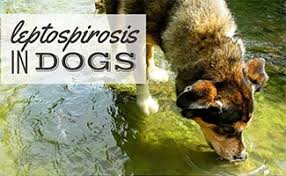Due to a production issue in the United States, the Leptospirosis vaccine is currently unavailable nationally.
The manufacturer is hoping to have stock available by March 2024, however supply is likely to be patchy for some time.
As soon as we have the vaccine available, we will notify clients on social media, and through our newsletter. We advise to call our reception on 4957 2269 in 2024 early – midyear.
As mentioned below, the main preventions are to avoid exposure to rats or areas frequented by rats, and prevent dogs from drinking or playing in stagnant water and mud.
WHAT IS IT?
Leptospirosis can cause a severe and often fatal bacterial infection in dogs. The primary risk factor is exposure to rats or areas frequented by rats.
Humans can also become infected either through contact with rat urine or via an infected dog.
WHERE IS IT?
In the first half of 2023 there has been 8 recorded cases – in Waterloo, Robertson (Southern Highlands), Albion Park (South Coast), Clovelly, Bondi Junction, Randwick, Bardia and Falls Creek (South Coast).
In 2022 the majority of cases were reported in the Shoalhaven area of the South Coast. A further hotspot occured around Newcastle.
In May 2022 a case was confirmed in Ingelside on the Northern Beaches of Sydney.
In June 2021 a case was confirmed in the Narrabeen/Elanora Heights, Northern Beaches.
In 2020 suburbs involved were Paddington, Balmain, Newtown, Artarmon and Crows Nest.
Previously case clusters had been localised to the Inner West suburbs of Surry Hills, Darlinghurst, Glebe and Redfern.
HOW DO DOGS BECOME INFECTED?
Dogs can become infected through:
- contact with rat urine
- contact with water or soil contaminated with rat urine
- seeking out and eating rats.
HOW CAN WE AVOID INFECTION?
Ways to prevent infection include:
- avoiding exposure to rats or areas frequented by rats
- preventing dogs from drinking or playing in stagnant water and mud
- Leptospirosis vaccination if indicated.
